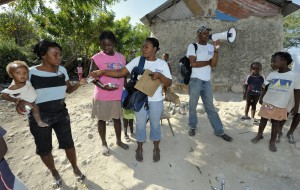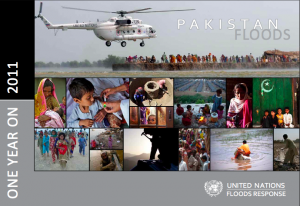On Monday the United Nations Office for the Coordination of Humanitarian Affairs gave a press release on the situation in the Horn of Africa. Reading it this morning, I was struck by some familiar echoes to the response of the ELCA.
The release notes that though the situation has continued to worsen and stories of tragedy continue to roll in, this tragedy did not take us by surprise. The ELCA, like the UN, had pre-positioned funds and partners on the ground well before this crisis hit the news. I also heard in the release’s description of the UN’s continued work, how the ELCA has continued to respond through our partners and companions as the situation worsens. And how like the release, the ELCA acknowledges more must be and can be done.
What I was really hit by, and what I saw as the main message in the release, is that the situation is not hopeless nor our responses futile. We have the resources to reduce and alleviate much of the suffering in this crisis. But the need is great and the time to act is now. This is at the heart of it the message I hear echoed in the ELCA’s response. We are the church, this is our purpose and we will continue to respond.
To learn more about the ELCA’s response, check out our disaster web page Horn of Africa Drought. The situation report(s) located under the “ELCA Response” give a great overview of the church’s response.
And here is the UN OCHA press release (pdf) if you’d like to read it.
————-
Gifts to ELCA International Disaster Response allow the church to respond globally in times of need. Donate now.


 It has been almost one year to the day since what has been described by UN General Secretary as a “slow-motion tsunami” struck Pakistan. With heavy monsoon rains in mid-July 2010, bodies of water throughout the country began to overflow their banks leading to flooding that started in the north and wound its way southward causing a domino effect of floods lasting from July to September. In total an estimated 18 million people were affected by flooding, with 14 million needing humanitarian assistance.
It has been almost one year to the day since what has been described by UN General Secretary as a “slow-motion tsunami” struck Pakistan. With heavy monsoon rains in mid-July 2010, bodies of water throughout the country began to overflow their banks leading to flooding that started in the north and wound its way southward causing a domino effect of floods lasting from July to September. In total an estimated 18 million people were affected by flooding, with 14 million needing humanitarian assistance.